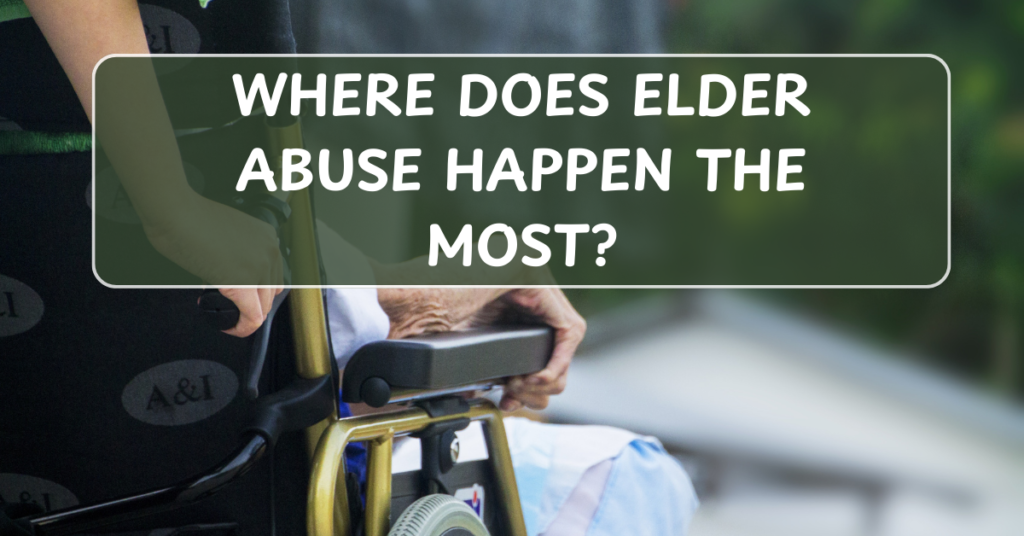
Elder abuse is a serious issue, but with awareness, education, and appropriate interventions, it can be prevented. Preventing elder abuse requires a combination of individual, community, and societal efforts. Below are effective strategies for preventing elder abuse and ensuring the well-being of older adults.
1. Educating Caregivers and Families
Proper education and training for caregivers, family members, and friends can go a long way in preventing elder abuse.
Key Actions:
- Training for Caregivers: Provide caregivers with the skills to properly care for elders, including recognizing signs of physical and emotional distress and maintaining appropriate boundaries.
- Support for Family Caregivers: Offering resources and support to families who care for elderly loved ones can reduce stress and prevent burnout, which may otherwise contribute to abusive behaviors.
- Education on Rights and Responsibilities: Elder care education should include teaching caregivers about the rights of the elderly, ethical treatment, and the consequences of abuse.
2. Regular Monitoring and Check-ins
Regular visits or check-ins can help detect potential abuse early. Whether through family visits, healthcare professionals, or community services, consistent monitoring is vital.
Key Actions:
- Routine Medical Visits: Ensure that the elderly person has regular check-ups with a healthcare provider, who can identify signs of abuse or neglect.
- Home Visits from Professionals: Social workers or home healthcare aides can visit elderly individuals in their homes, offering both care and oversight.
- Check-in Systems: Family members, friends, or neighbors can establish regular phone calls or visits to the elder to monitor their well-being.
3. Strengthening Legal Protections
Laws and policies that protect the elderly need to be robust and enforced consistently.
Key Actions:
- Advocacy for Stronger Legislation: Support and advocate for laws that protect older adults from abuse, including those that address financial exploitation, elder care standards, and criminal penalties for abusers.
- Report Abuse: Encourage communities to report suspected abuse, and ensure that reporting mechanisms are accessible and efficient, such as elder abuse hotlines or local adult protective services.
- Enhanced Background Checks: Require comprehensive background checks for anyone hired to provide care for elders, including healthcare aides and home helpers, to ensure they have no history of abuse or criminal behavior.
4. Empowering Older Adults
Empowering older adults to speak up and make their own decisions is a critical aspect of abuse prevention.
Key Actions:
- Education on Rights and Resources: Educate elders about their rights, including how to seek help if they are being abused, and provide information on local resources and hotlines.
- Encouraging Communication: Create an environment where elders feel comfortable sharing concerns about their treatment without fear of retaliation.
- Autonomy and Decision-Making: Encourage and support elders in making decisions about their own lives, care, and finances to maintain a sense of control.
5. Building Social Support Networks
Social isolation is a significant risk factor for elder abuse, so it’s essential to maintain and strengthen the elder’s social connections.
Key Actions:
- Engage in Social Activities: Encourage older adults to stay socially active through clubs, religious groups, exercise classes, or community events.
- Family and Community Support: Strengthen family ties and community involvement to create a network of people who can provide emotional support and alert others to potential abuse.
- Volunteer Programs: Community organizations can develop volunteer programs to regularly visit and check on isolated or homebound seniors.
6. Early Intervention and Support Services
Early intervention is crucial for preventing abuse and reducing its impact on both the elder and the caregiver.
Key Actions:
- Counseling and Mental Health Services: Caregivers who are experiencing stress or burnout may be at a higher risk of abusing the elder. Providing mental health support and counseling services for both caregivers and elders can address underlying issues before they escalate.
- Support Groups for Caregivers: Establish support groups or community resources for caregivers to share experiences, reduce stress, and gain emotional support.
- Adult Protective Services: Encourage the use of Adult Protective Services (APS) to investigate and intervene when abuse is suspected. APS can also provide resources to help families and caregivers.
7. Encouraging Reporting and Raising Awareness
Raising awareness of elder abuse within communities helps prevent mistreatment by creating a culture of accountability and vigilance.
Key Actions:
- Public Awareness Campaigns: Governments, nonprofits, and community organizations can run campaigns to educate the public about the signs and consequences of elder abuse.
- Elder Abuse Hotlines: Establish and publicize confidential hotlines for reporting suspected elder abuse to encourage individuals to report any concerns.
- Community Workshops: Hold workshops for families, caregivers, and the community on recognizing, preventing, and reporting elder abuse.
8. Creating Safe and Supportive Environments
In institutional settings like nursing homes, safety measures should be in place to ensure elder residents are treated with dignity and respect.
Key Actions:
- Nursing Home Oversight: Regular inspections and audits of nursing homes and long-term care facilities can ensure that standards of care are being met.
- Staff Training and Accountability: Nursing home staff should be well-trained to handle the physical, emotional, and psychological needs of elderly residents. Clear policies should also be in place for accountability when abuse is suspected.
- Personalized Care Plans: Tailor care plans to the specific needs of each elder to ensure they are being treated appropriately.
Conclusion
Preventing elder abuse requires a comprehensive approach involving education, support, legal protections, and vigilance from the community. By empowering elders, supporting caregivers, and fostering strong social networks, we can reduce the risk of abuse and ensure that older adults live in safety and dignity. If you suspect elder abuse, take action by contacting local authorities, support services, or elder abuse helplines to protect vulnerable individuals.


